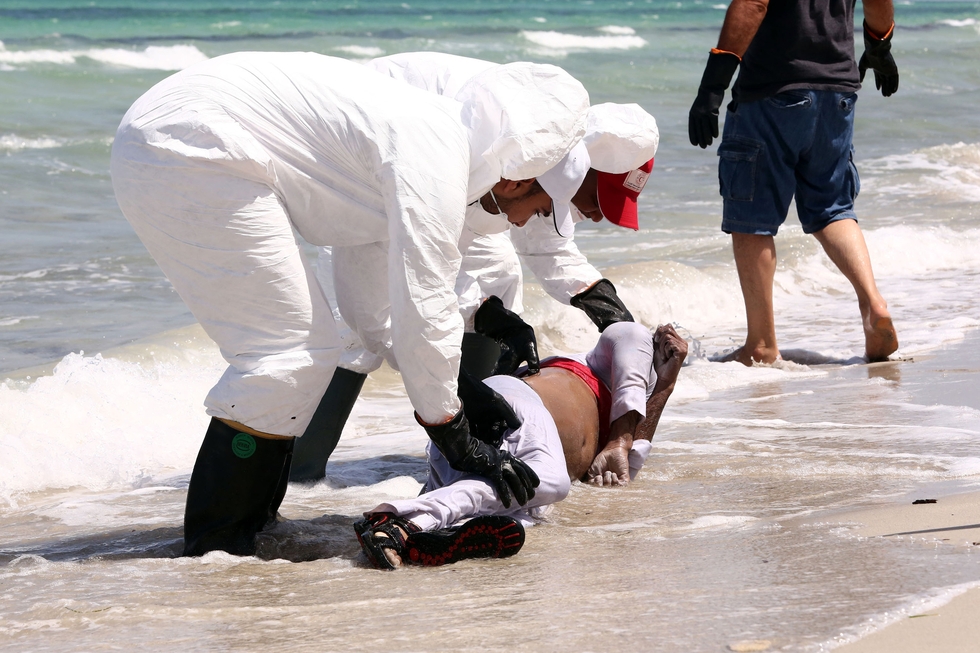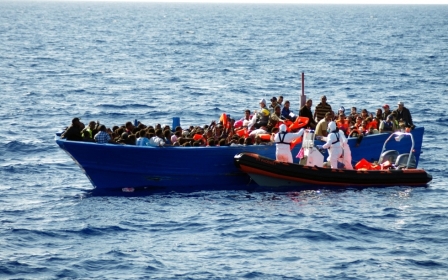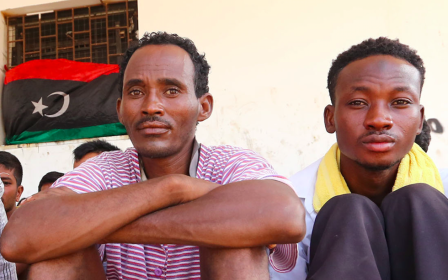Scores of bodies retrieved from Mediterranean in latest refugee tragedy

Rescuers have retrieved from the sea the bodies of 111 migrants whose boat sank off the coast of Libya, the Red Crescent said on Saturday.
A spokesman for the Libyan relief organisation said dozens are still missing after Thursday's tragedy.
"So far 111 bodies have been retrieved from the sea while dozens of people are still missing," the spokesman Mohammad al-Misrati told AFP.
He said the boat carried 400 would-be migrants, and that 198 had been rescued.
On Friday Misrati said that 76 bodies had been retrieved after the boat sunk near the western Libyan port of Zuwara.
Red Crescent teams wearing protective white clothing and masks on Friday collected bodies that had washed ashore, placing them in orange plastic bags and carrying them to ambulances.
"The boat was in a bad condition and people died with us," said Ayman Talaal, a Syrian survivor, standing next to his daughter. "We have been forced into this route. It's now called the grave of the Mediterranean Sea."
Lacking navy ships, Libyan officials were searching for survivors with fishing boats and inflatables provided by locals. About 198 people had been rescued by noon, officials said.
Libya, with a coastline of 1,770 kilometres (more than 1,000 miles), has for years been a stepping stone for Africans seeking a better life in Europe, with most heading for Italy.
Conflicts across the Middle East, especially in Syria, have also made Libya a transit country for those fleeing violence in the region.
People smugglers have taken advantage of the chaos since the 2011 uprising that toppled dictator Muammar Gaddafi to step up their lucrative business.
The International Organization for Migration said it estimated a third of a million people had crossed the Mediterranean so far this year to wash up in southern Europe.
Almost two-thirds had arrived in Greece and most of the rest in Italy.
The Mediterranean crossing is treacherous, and about 2,500 people have died at sea trying to reach Europe this year alone.
Middle East Eye propose une couverture et une analyse indépendantes et incomparables du Moyen-Orient, de l’Afrique du Nord et d’autres régions du monde. Pour en savoir plus sur la reprise de ce contenu et les frais qui s’appliquent, veuillez remplir ce formulaire [en anglais]. Pour en savoir plus sur MEE, cliquez ici [en anglais].




